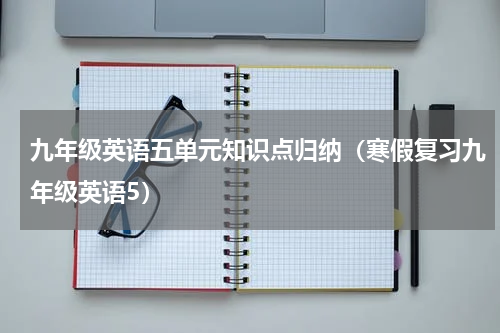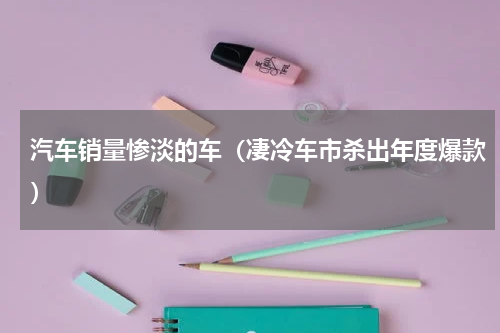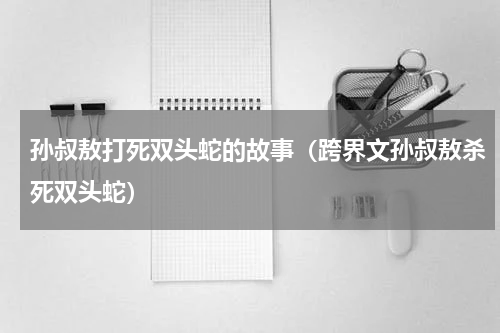构成或组成的,指人、物皆可,指结构成分。seem的几种常见结构:seemtodosth此句型可与“Itseemsthat…”②lookfor意为“寻找”,是有目的地找,强调“寻找”这一动作。

【重点短语】
1.be made of 由...制成的(表示制成成品后,仍可看出原材料是什么)
2.be made from 由...制成的(在成品中已无法辨认原材料)
3.be known for 以......闻名
4.be used for 被用于......
5.no matter 不论;无论
6.be covered with 用...覆盖
7.as far as I know 据我所知
8.by hand 用手
9.be good for 对……有益
10.on the last friday of each month最后一个星期五
11.be good at 擅长
12.make high-technology products 制造高科技产品
13.the earth’s surface 地球表面
14.many different kinds of 许多不同种类的
15.fly a kite 放风筝
16.such as 例如
17.according to 根据 按照
18.ask for help 请求帮助
19.a symbol of ……的象征
20.put…on… 把……放在……上
21.be used for 被用于做……
22.good luck 好运
23.at a very high heat 在高温下
24.be made in 在……制造的
25.be famous for 以……著名
26.on the sides of mountains 在山腰上
27.traffic accident 交通事故
28.a kite festival 风筝节
29.be from 来自
30.turn ……into ……把……变成……
【重点句型】
1. What are the shirts made of?
衬衫是由什么制成的?
2. It was made in Thailand.
它是在泰国制造的。
3. No matter what you made buy,you might think those products were made in those countries.
无论你买什么,你会认为那些产品是在那些国家制造的。
4. The international kite festival is held in April every year.
国际风筝节是在每年的四月举行。
5. Laura didn’t know that kite flying could be so exciting.
劳拉不知道放飞风筝可能会如此令人兴奋。
【考点详解】
1. made of 由……制(构)成,后接构成某物质的原料。
例:This skirt is made of silk.这件裙子是用丝绸制成的。
be made of/from/up of的区别
(1)be made of 表示制成成品后,仍可看出原材料是什么,保留原材料的质和形状,制作过程仅发生物理变化。
例:The kite is made of paper.风筝是用纸做的。
(2)be made from 表示制成的东西完全失去了原材料的外形或特征,或原材料在制作过程中发生化学变化,在成品中已无法辨认。
例:The paper is made from wood.纸是木头做的。
Butter is made from milk. 黄油是从牛奶中提炼出来的。
(3)be made up of 用……构成或组成的,指人、物皆可,指结构成分。
例:Our class is made up of six groups. 我们班是由六个小组组成的。
2. It seems that many people all over the world drink Chinese tea.
好像全世界的许多人都在喝中国茶。
句型“It seems that…”意为“看起来好像/似乎……”,其中seem是连系动词,意为“似乎;好像”,句型中的it是形式主语,不能用其他代词来替代。
例:It seems that he was late for the train. 看来他没赶上火车。
seem的几种常见结构:
(1)seem to do sth此句型可与“It seems that…”转换。
例:They seem to find the way to the cinema. =It seems that they find the way to the cinema.
他们似乎找到了去电影院的路了。
(2)seem 形容词
例:My temperature seems (to be) all right. 我的体温看上去正常了。
(3)seem 名词
例: That seems not a bad idea. 看上去主意不错。
3. When the leaves are ready, they are picked by hand and then are sent for processing in factory.
当茶叶成熟时,就被用手工采摘然后送到工厂加工。
此句是由when 引导的时间状语从句,are picked, are sent都是一般现在时的被动结构。
例:When the fruit are ready, they are picked and are sent to the market for sale.
当这些水果成熟后就被摘下来并送到市场上卖掉。
4. No matter what you may buy, you might think those products were made in those countries.
无论你买什么,你都可能认为那些产品是在那些国家生产的。
此句为由"no matter特殊疑问词"引导让步状语从句。意为“无论….”,相当于whatever。
例:No matter what I said to her, she still didn’t believe me.
无论我对她说什么,她仍然不相信我。
5. find out, 查出,找到。
例:The police are trying to find out where the boy got off the train.
警察正在查找这个男孩是从哪下的火车。
find,find out和look for都含有“寻找、找到”的意思,但其含义和用法却不同。
① find意为“找到、发现”,通常指找到或发现具体的东西,强调的是找的结果。
Will you find mea pen? 你替我找支钢笔好吗?
② look for意为“寻找”,是有目的地找,强调“寻找”这一动作。
例:I’m looking for my pen everywhere. 我正到处找我的钢笔。
He is looking for his shoes. 他在找他的鞋子。
③ find out意为“找出、发现、查明”,多指通过调查、寻问、打听、研究之后“搞清楚、弄明白”,通常含有“经过困难曲折”的含义,指找出较难找到的、无形的、抽象的东西。
例:Please find out when the train leaves. 请查一下火车什么时候离站。
Read this passage,and find out the answer to this question.
【重点语法】
一般现在时的被动语态
一. 概念理解
1. 时态:在英语语言中,时态主要讨论行为动词发生的时间。
如:He often helps me with my English. 他经常帮助我学英语。(help这个动作经常发生often;故用一般现在时)
2. 语态:在英语语言中,语态主要讨论句子主语与行为动词的关系。语态有两种:主动语态和被动语态。
① 主语是动作的发出者(执行者)为主动语态。
如: The tall boy often hits his classmates (主语boy是谓语动词hit的发出者)。
② 主语是动作的接受者(承受者)为被动语态。汉语中常用“被”、“给”、“由”、“受”等词用来表示被动,而英语用:助动词be及物动词的过去分词构成
如: Chinese is spoken by the most people in the world(主语Chinese是谓语动词speak的承受者)。
3. 语态与时态的关系:在任何一个英语句子中都同时存在语态和时态,他们是分析一个英语句子的两个主要元素。
如:① He is looking after his sister at home. (此句为现在进行时的主动语态结构)
② He is being looked after well by his parents. (此句为现在进行时的被动语态结构)
二. 被动语态最基本的句型结构: be及物动词过去分词
说明:① be 有时态,人称和数的变化。
② 被动语态中的谓语动词必须是及物动词;因为被动句中的主语是动作的承受者,某些短语动词如look after, think of, take care of, work out, laugh at等,也可用于被动语态。
三. 被动语态的使用
1. 当不知道或没有必要指出动作的执行者时,常用被动语态,这时往往不用by 短语。
Mr. White, the cup with mixture was broken after class. (只是告诉老师杯子坏了,不知是谁弄坏的,或不想说出谁弄坏的)。
2. 突出或强调动作的承受者,如果需要说出动作的执行者,用by 短语。
如:The cup was broken by Paul.
四. 主动语态变被动语态的变法: 主动语态与被动语态之间如何转换
1. 把主动语态的宾语变成被动语态的主语。
2. 把主动语态的谓语变成被动语态的be过去分词,时态要与原句保持一致。
3. 把主动语态的主语变为介词by的宾语,放在被动语态里谓语动词之后,by 短语可以省略。如果原句主语是地点名词,在被动语态中用in地点名词作状语。
五. 一般现在时的被动语态:am /is/ aredone
如:Tea is grown in Hangzhou. 杭州种植茶叶。
Unit6 When was it invented?【重点短语】
1.It's my pleasure.= My pleasure. 我的荣幸
2.seem to 动词原形 好像做某事
3.such a great invention 如此伟大的一项发明
4.think of = think about 想到,考虑
5.in our daily lives 在我们的日常生活中
6.in my daily life在我的日常生活中
7.have a point 有道理
8.by accident 偶然地,意外地
9.over an open fire 在篝火上
10.It is said that 据说
11.It is believed that人们相信
12.fall into(过去式fell into)=drop into掉进…
13.in the 19th century 在19世纪
14.spread to other countries 传播到其他国家
15.at a low price 以很低的价格
16.bring(brought) sth. to sp.把某物带到某处
17.all of a sudden 突然地
18.less than少于,不到
more than = over 超过
19.without doubt 毫无疑问
20.at that time 在那时
21.advise sb (not) to do sth建议某人(不要)做某事
22.start doing sth 开始做某事
23.work on sth 致力于某事
24.(be) similar to 与……相似
25.the Olympics 奥运会
26.by mistake 错误地,无意地
27.make a mistake 犯错
28.divide ...into…把…分成…
29.in the end = at last = finally 最后
30.at the same time 同时
【重点句型】
1.give sth. to sb.
I gave a pen to him. 我给他一支笔。
2.give sb. sth.
I gave him a pen. 我给他一支笔。
3. make sb./sth 形容词:使…怎么样
It made me happy. 它使我高兴
4.make sb./sth 名词:让…...做…...
It made me laugh. 它让我发笑。
5. not…until… 直到…才…
I didn't go to bed until I finished my work.
我直到完成我的工作才去睡觉。
【考点详解】
1. invent v. 发明
inventor n. 发明家
invention n. 发明
2. be used for doing 用来做…(是被动语态)(这个短语的考点有两点,一是used for的意思,二是for后面用动名词)
Pens are used for writing. 笔是用来写的。
3. 给某人某样东西 give sth. to sb.
I gave a pen to him. 我给他一支笔。
give sb. sth.
I gave him a pen. 我给他一支笔。
4. all day 整天
5. salty adj. 咸的 salt n. 盐
6. by mistake 错误地(犯错:make mistake,这些常见的短语大家务必要掌握)
I took the umbrella by mistake. 我不小心拿错了雨伞。
8. by accident 意外,偶然(常见短语,考的最多的是它的意思)
I met her by accident at bus stop. 我在公共汽车站意外地见到了她。
9. not…until… 直到…才…(重中之重,这个用法非常重要!)
I didn't go to bed until I finished my work. 我直到完成我的工作才去睡觉。
10. according to名词,根据…
according to this article 根据这篇文章
11. over an open fire 野饮
12. leaf n. 叶子 复数形式 leaves
13. nearby adj. 附近的
14. fall into 落入,掉进
The leaf fell into the river. 叶子落入了河里。
fall down 摔倒
She fell down from her bike. 她从她自行车摔倒了。
15. quite 非常 adv. 与冠词a连用时,冠词a必须放在它的后面
quite a beautiful girl 一个漂亮的女孩
17. pleased adj. 表示外部因素引起人发自内心的欣慰和愉快
pleasant adj. 愉快,高兴。指天气、时间、旅行令人高兴愉快
please v. 使高兴
18. battery-operated adj. 电池控制的,是名词 动词的运动分词构成的合成形容词
19. in the sixth century 在第6世纪
20. travel around 周游
21. more than == over 超过(相比较,more than更重要)
more than 300 == over 300 超过300
22. including 包括,可以与名词和动名词连用
Six people, including a baby, were hurt. 6个人包括一个小孩受伤了。
23. have been played 被上演 ,是现在完成时的被动语态,现在完成时的被动语态的结构:have/has been过去分词。
24. be born 出生 (常见短语)
He was born in Canada. 他在加拿大出生。
25. safety n. 安全 safe adj. 安全的
26. knock into 撞上(某人)
27. divide sth. into…,将…划分成...,通常指将一个整体分成几个对应相对的部分
Let's divide ourselves into 4 groups. 让我们把我们自己划成4组。
28. since then 从那以后,常与完成时态连用
【重点语法】
一般过去时的被动语态
1. 被动语态表示句子的主语是谓语动词所表示的动作承受者。
2. 被动语态基本结构:be 及物动词的过去分词
被动语态中的be 是助动词,有人称、数和时态的变化。
一般现在时的被动语态为:am/is/are 过去分词
一般过去时的被动语态为:was/were过去分词
A lot of trees were planted here last year.
与情态动词连用的被动语态:情态动词be过去分词(关于被动语态,大家一定要熟悉,这个在中考的时候属于是必考内容,而且是重点内容)
关于被动语态更多内容,详见Unit5重点语法部分。
Unit7 Teenagers should be allowed to choose their own clothes.【重点短语】
1. be allowed to do sth. 被允许做某事
allow sb. to do sth. 允许某人做某事
allow doing sth. 允许做某事
2. sixteen-year-olds = sixteen-year-old boys and girls 16岁的孩子
3. part-time jobs 兼职工作
4. a driver’s license 驾照
5. on weekends 在周末
6. at that age 在那个年龄段
7. on school nights 在上学期间的晚上
8. stay up 熬夜
9. clean up 清扫
10. fail(in)a test 考试不及格
11. take the test 参加考试
12. the other day 前几天
13. all my classmates 我所有的同学
14. concentrate on 全神贯注于
15. be good for 对…...有益
16. in groups 成群的,按组
17. get noisy 变得吵闹(系表结构)
18. learn from 向......学习
19. at present 目前,现在
20. have an opportunity to do sth. 有做……的机会
【重点句型】
1. I don’t think twelve-year-olds should be allowed to get their ears pierced. 我认为不应该允许12岁的孩子穿耳孔。
2. They talk instead of doing homework. 他们聊天而不是做作业。
3. He is allowed to stay up until 11:00 pm. 允许他们熬到晚上11点。
4. We should be allowed to take time to do things like that more often. 我们应该被允许更加经常的花些时间多做这类事情。
5. What school rules do you think should be changed? 你认为学校的哪些制度应该改一改了?
6. The two pairs of jeans both look good on me. 这两条牛仔裤穿在我身上都适合。
7. The classroom is a real mess. 教室太脏了。
8. Should I be allowed to make my own decisions? 我应该被允许自己做决定吗?
9. Only then will I have a chance of achieving my dream. 只有这样我才能实现我的梦想。
10. They should be allowed to practice their hobbies as much a s they want. 应该允许他们对业余爱好想练多长时间就练多长时间。
11. We have nothing against running. 我们没有理由反对他跑步。
【考点详解】
1. enough adv. 足够地 adj. 足够的
形容词 enough 如:beautiful enough 足够漂亮
enough 名词 如:enough food 足够食物
2. stop doing sth. 停止正在做的事
Please stop speaking. 请停止说话。
stop to do sth. 停止一件事去做另一件事
Please stop to speak. 请停下来说话。
3. it seemsthat从句 看起来好像……
It seems that he feels very sad. 他看起来好像很伤心。
4. yet 仍然,还 (常用在否定句或疑问句当中)
5. stay up 熬夜
如:I often stay up until 12:00pm. 我经常熬夜到12点。
6. 程度副词:always总是 usually经常 sometimes有时 never 从不
7. go shopping(去购物), go fishing(去钓鱼), go swimming(去游泳), go boating(去划船), go hiking(去远足)
8. be strict with sb. 对某人严厉
如:Mother is strict with her son. 妈妈对她的儿子很严厉。
9. the other day 前几天
10. agree 同意 反义词:disagree不同意 动词
agreement 同意 反义词:disagreement 不同意 名词
11. keep sb/ sth形容词 使某人/某物保持……
如:We should keep our city clean. 我们应该保持我们的城市干净。
12. both…and…动词复数形式(both and本身也是一个非常重要的考点)
如:Both Jim and Li Ming play bastketball.
13. learn(sth.)from sb 向谁学习(什么)
如:Jim learnt English from his English teacher. 吉姆向他的英语老师学习英语。
14. at least 最少 at most 最多
15. 花费: take ,cost, spend , pay
sth. take(sb.) time to do sth. 如:It took (me) 10 days to read the book.
sth. cost(sb.)… 如:The book cost(me)100 yuan.
sb. spend … on sth. 如:She spent 10 days on this book.
sb. spend …(in)doing sth. 如:She spent 10 days(in)reading this book.
sb. pay … for sth. 如:She paid 10 yuan for this book.
(大家注意这几个词的区分,take它的主语往往是it,spend和pay的主语是人,cost的主语是物,我们只要明白了这几点,做题就比较容易了)
16. have时间段 off 放假,休息 如:have 2 days off
17. get in the way of 碍事,妨碍
18. think about与think of的区别
① 当两者译为:认为、想起、记着时,两者可互用
I often think about/of that day. 我经常想起那天。
② think about 还有“考虑”之意,think of做为想到、想出时两者不能互用
At last, he thought of a good idea. 最后他想出了一个好主意。
We are thinking about going Qinzhou. 我们正在考虑去钦州。
19. care about sb. 关心某人
如:Mother often care about her son.
20. also:也,用于句中 I am also a student. 我也是一个学生
either:也,用于否定句且用于句末 I am not a student, either. 我也不是一个学生。
too:也,用于肯定句且用于句末 I am a student, too. 我也是一个学生。
(要记住它们分别用在什么句子中,以及用在什么位置)
【重点语法】
语态
1. 两种语态:主动语态和被动语态
主动语态表示主语是动作的执行者;被动语态表示主语是动作的承受者。
Cats eat fish.(主动语态)猫吃鱼。
Fish is eaten by cats.(被动语态)鱼被猫吃。
2. 被动语态的构成
由“助动词be及物动词的过去分词”构成
助动词be 有人称、数和时态的变化。
倒装句
由so 助动词(be/do/will/have)/情态动词 主语,意为:…也是一样。
She is a student. So am I. 她是一个学生,我也是。
She will go to school. So will he. 她将去学校,他也是。
Unit8 It must belong to Carla.【重点短语】
1. be long to 属于
2. listen to classical music 听古典音乐
3. at school 上学;求学
4. go to the concert 去听音乐会
5. have any/some idea 知道
6. a math test on algebra 有关代数的数学考试
7. the final exam 期末考试
8. because of 因为
9. a present for his mother 送给她妈妈的礼物
10. run for exercise 跑步锻炼
【重点句型】
1. If you have any idea where might be please call me. 如果你知道它可能在哪,请打电话给我。
2. It’s crucial that I study for it because it counts 30% to the final exam. 关键是我必须学,因为它占期末考试的30%。
3. What do you think “anxious“ means? 你认为“anxious”是什么意思?
4. He could be running for exercise. 他可能是正在跑步锻炼身体。
5. He might be running to catch a bus. 他可能是正在跑着赶公共汽车。
6. Why do you think the man is running? 你觉得那个男的为什么跑?
【考点详解】
1. 情态动词must, may , might, could, may , can't表示推测含义,后面都接动词原形,都可以表示对现在情况的揣测和推断,但他们含义有所不同。
must 一定,肯定 (100%的可能性)
may, might, could 有可能,也许 (20%-80%的可能性)
can't 不可能,不会 (可能性几乎为零)
2. whose:谁的,是个疑问词,作定语,后面接名词
如:---Whose book is this? ---This is Lily's.
4. 当play 指弹奏西洋乐器时,常在乐器前用定冠词the
play the guitar;play the piano;play the violin
当play 指进行球类运动时,则不用定冠词
play football;play basketball;play baseball
5. if引导的条件状语从句,主句用一般将来时,从句用一般现在时代替将来时。
If you don't hurry up, you'll be late. 如果你不快点,你将会迟到。
6. if you have any idea= if you know 如果你知道
7. on 关于(学术,科目)
9. because of:由于
because:因为,它们的用法是:
because of名词/代词/名词性短语(这是一个重要的短语)
because从句
I do it because I like it. 我做这件事是因为我喜欢。
I had to move because of my job. 因为工作的原因我得搬家。
10. own v. - owner n.
listen v. - listener n.
learn v. - learner n.
11. catch a bus 赶公车
12. neighbor 邻居,指人
neighborhood 邻居,指地区也可指附近地区的人
13. local 当地的 如:local teacher 当地的教师
16. anything strange 一些奇怪的东西
当形容词修饰something, anything, nothing, everything等不定代词时,放在这些词的后面(重要,切记)
17. there be sb./sth. doing 有…...正在......
There is a cat eating fish.
18. escape from… 从哪里逃跑出来(常考短语)
He escaped from the burning building. 他从燃烧的建筑中逃出来。
19. an ocean of名词 极多的,用不尽的 如:an ocean of energy.
20. unhappy 不高兴的 反义词:happy 高兴的
22. dishonest 不诚实的 反义词:honest 诚实的
23. get on 上车 get off 下车(掌握住这两个短语的意思)
24. use up 用光,用完
They have used up all the money. 他们已经用完了所有的钱。
25. attempt to do 试图做某事(重要考点,大家记着attempt后面用的是不定式to do)
The boys attempted to leave for Beijing. 男孩子们试图想去北京。
26. wake 是个动词,意思是唤醒,常用的词组:wake up 意为醒来
Please wake me up at 8 o'clock. 请在8点钟叫醒我。
27. look for 寻找,强调找的动作(重要)
find 找到,强调找的结果
I am looking for a pen. 我正在找一支笔。(指找的动作)
I found my pen just now. 我刚刚找到了我的笔。(指找的结果)
28. hear 听,强调听的结果
listen 听,强调听的动作
Did you hear? 你听到了吗?(指听的结果)
I often listen to the music. 我经常听音乐。(指听的动作)
29. try one's best to do sth. 尽某人的最大努力去做某事(注意best后面跟的不定式to do是考试的重点)
He tried his best to run. 他尽他的最大努力去跑。
Unit9 I like music that I can dance to.【重点短语】
1. expect to do sth. 期望做某事
expect sb. to do sth 期望某人做某事
2. catch up with 追上,赶上
3. different kinds of music 各种不同的音乐
4. quiet and gentle songs 轻柔的歌曲
5. take…to… 带……到……
6. remind…of… 使某人想起或意识到……
7. her own songs 她自己的歌曲
8. be important to 对……重要
9. Yellow River 黄河
10. Hong Tao’s latest movie 洪涛最近的电影
11. over the years 多年来
12. be sure to do sth. 务必/一定做某事
13. one of the best known Chinese photographers 世界上最有名的中国摄影家之一
14. on display 展览,展出
15. come and go 来来往往
16. can’t stand 不能忍受
【重点句型】
1. I love singers who write their own music. 我喜欢自己创作曲子的歌手。
2. We prefer music that has great lyrics. 我们更喜欢歌词很棒的音乐。
3. What do you dislike about this CD. 你不喜欢这张CD的什么?
4. What does it remind you of? 它使你想起了什么?
5. The music reminds me of Brazilian dance music. 这首曲子使我想起了巴西舞曲。
6. It does have a few good features, though. 然而,它的确也有一些好的方面。
7. She really has something for everyone. 每个人的确都能从她的作品中领悟到一些东西。
8. Whatever you do, don’t miss this exhibition. 无论怎样,你都不能错过这个展览会。
9. As the name suggests, the band has a lot of energy. 正如乐队名字所暗示的那样, 这支乐队很有活力。
10. Some people say they are boring, but others say they are great. 有些人说他们很无聊,但也有人说,他们是伟大的。
11. I f I were you, I’d eat nuts instead. 如果我是你,我会改吃坚果。
【考点详解】
1. prefer v. 更喜欢,宁愿
prefer sth. 更喜欢某事 I prefer English. 我更喜欢英语。
prefer to do. 宁愿做某事 I prefer to sit. 我宁愿坐着。
prefer sth to sth. 同…...相比更喜欢…... I prefer dogs to cats. 与猫相比我更喜欢狗。
prefer doing to doing. 宁愿做某事而不愿做某事 I prefer walking to sitting. 我宁愿走路也不愿坐着。
2. along with 伴随… , 同… 一道
I will go along with you. 我同你一道去。
3. dance to sth. 随着…...跳舞(用的介词是to,这一点要注意)
She likes dancing to the music. 她喜欢随着音乐而跳舞。
4. music n. 音乐
musician n. 音乐家
5. unfortunately adv.不幸运地
fortunately adv.幸运地(如果你把这个词记住了,那考试的时候你就是幸运的~)
6. fun n. 有趣 funny adj. 有趣的,滑稽的
7. be sure to do 一定做某事,肯定做某事
It is sure to snow. 肯定要下雪
8. known adj. 有名的,著名的(记住意思)
9. on display 展览(常见短语)
10. energy n.活力 energetic adj.有活力的
11. most of… ……的大多数
12. keep healthy 保持健康
13. get together 聚在一起
14. discuss v.讨论 discussion n.讨论
15. be bad for sth. 对…有坏处
16. take care of = look after 照顾
She often takes care of/looks after her son.
17. stay away from 远离……
Stay away from me. I have a cold. 请远离我,我得了感冒
18. to be honest 老实说
To be honest I really like flowers. 老实说我真的很喜欢花。
19. dislike 不喜欢 反义词:like 喜欢
20. fisherman 渔夫 它的复数形式是fishermen
21. photography n. 摄影;photograph n. 照片 相片;photographer n. 摄影师
22. be in agreement 意见一致,常与介词on/about连
They are in agreement on that question. 他们对那个问题意见一致。
23. even if 甚至
24. mainly adv. 主要地 首要地
Unit10 You're supposed to shake hands.【重点短语】
1. be supposed to do 被期望/应该做......
2. shake hands 握手
3. for the first time 第一次
4. table manners 餐桌礼仪
5. drop by 偶然拜访,顺便拜访
6. after all 毕竟,终究
7. be on time 准时
8.(in) the wrong way 以错误的方式
9. be relaxed about 对……比较随意/放松
10. a bit 一点
【重点句型】
1. He should have told me about it. 他本应该把这件事告诉我。
2. Where I’m from, we’re pretty relaxed about time. 我所在的地方,对时间是相当宽松的。
3. We often just drop by our friends’homes. 我们时常去朋友家拜访。
4. Often we just walk around the town center, seeing as many of our friends as we can. 我们经常走遍市中心,看尽可能多的朋友。
5. We usually make plans to see friends. 通常我们都是做好去看朋友的计划。
6. We’re the land of watches, after all. 毕竟,我们是表之乡。
7. It’s even better than I thought it would be. 事情比我想象的要好得多。
8. They go out of their way to make me feel at home. 他们花尽心血让我感觉不到拘束。
9. Although I still make lots of mistakes, it doesn’t bother me like it used to. 尽管我经常出一些错,但它不像过去那样打扰我。
10. I thought that was pretty strange at first, but now I’m used to it. 开始,我想那是太奇怪了,但是现在我已经习惯了。
11. I have to say I find it difficult to remember everything, but I’m gradually getting used to things, and don’t find them so strange any more. 不得不承认,我发现记住一切东西是很困难的,但我渐渐习惯了,并且发现他们也不再那么奇怪了。
【考点详解】
1. be supposed to do 应该(注意它的翻译,另外supposed后面用的是不定式to do)
We are supposed to stop smoking. 我们应该停止吸烟。
3. You should have asked what you were supposed to wear. 你本应该问清楚怎么样穿才得体。
上句中的“should have asked”是“情态动词 现在完成时”表示过去本应该做某事,事实上没有做(这点要清楚)
She should have gone to Beijing. 她本应该去了北京。(没有去)
4. be relaxed about sth. 对某事随意、不严格
They are relaxed about the time. 他们对时间很随意。
5. pretty adv. 相当,很 adj. 美丽的
She is pretty friendly. 她相当友好。
She is a pretty girl. 她是一个美丽的女孩。
6. plan to do. 打算做某事(常见用法)
She has planed to go to Beijing.
7. drop by 访问,看望,拜访,串门
We just dropped by our friends' homes.我们刚刚去朋友家串门。
8. on time 按时(in time的意思是及时,这两个短语经常出现在辨析题中)
9. after all 毕竟 终究(五星级重点词汇,记住它的意思)
You see I was right after all. 你看,毕竟还是我对了。
10. invite sb. to do sth. 邀请某人做某事(重要内容,注意后面用的是不定式to do)
Lily invited me to have dinner. 莉莉请我吃晚饭。
11. without 没有(这个词经常考,题目会单纯考它的意思,所以大家应该记住它的意思)
12. around the world = all over the world 全世界
13. pick up 捡起,挑选(捡起的意思考的较多)
He picked up his hat. 他捡起他的帽子。
14. start doing = start to do 开始做某事(start的用法属于常考内容,记住它的这两个用法)
He started reading= He started to read. 他开始阅读。
15. point at 指向(指近处的事物)
point to 指向(指远处的事物)
16. stick v. 剌,截 n. 棒,棍
17. go out of one's way to do 特意/专门做某事
He went out of his way to make me happy. 他特意使我高兴。
18. make mistakes 犯错误(复数)
make a mistake 犯错误(一个)
19. be different from 与……不同
Chinese food is different from theirs. 中国菜与他们的不同。
20. get/be used to sth. 习惯于……(这些用法大家务必记住,虽然这些用法很多,而且比较容易搞混淆,但是它们确实经常考,大家可以结合例子记忆)
get/be used to doing 习惯于……
be used to do 被用来做……
be used for doing 被用来做...…
used to do 过去常常做…...
I wash clothes everyday. I'm used to it. 我每天都洗衣服。我习惯了。
I am used to washing clothes. 我习惯于洗衣服了。
The knives are used to cut things. 小刀被用来切东西。
The knives are used for cutting things. 小刀被用来切东西。
She used to watch TV after school. 她过去放学后常常看电视。
21. I find it difficult to remember everything. 我发现要记住每一样事是困难的。
find/thinkit形容词to do sth.
22. cut up 切开,切碎
Let's cut up the watermelon. 让我们切开这个西瓜吧。
23. make a toast 敬酒
24. crowd v.挤满 其形容词和过去式及过去分词都是:crowded(crowded考的相对多些)
25. set n. 一套 v. 设置
26. can't stop doing 忍不住做某 I can't stop laughing. 我忍不住笑
27. make faces 做鬼脸
28. face to face 面对面地
29. learn…by oneself 自学......(重要用法)
I learn English by my self. 我自学英语。










